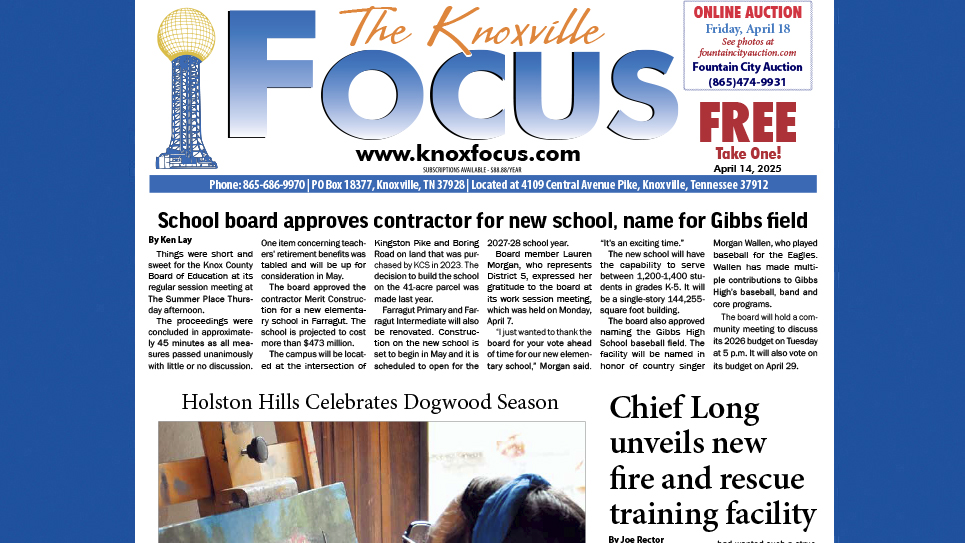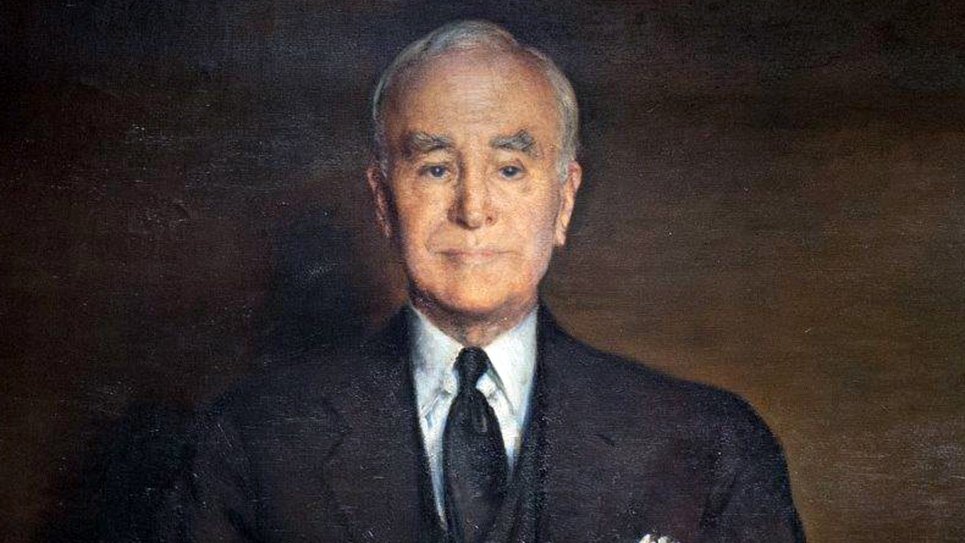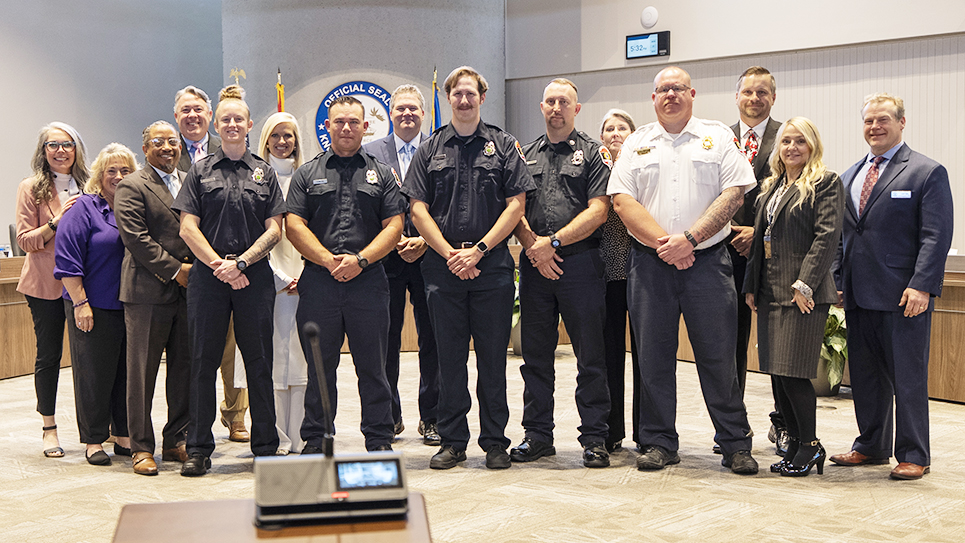
Photo from the author’s personal collection.
Harry Truman celebrates in 1938 at the Jackson Day Dinner. From left to right, Senator Harry Truman, Senator Matthew M. Neely, Senator Carl Hatch, and Senator Key Pittman.
There was a time when members of the United States Senate were not only considered some of the most talented and extraordinary people in their respective states, but the entire country. Daniel Webster, Henry Clay, and John C. Calhoun all occupied seats in the U. S. Senate at the same time and their speeches and debates are still studied to this day. Well after the age of the Senate’s most famous triumvirate, there have been remarkable people to serve in the United States Senate.
One of the most unlikely members of the Senate was Harry S. Truman.
Truman was a poor public speaker, not at all physically imposing or distinctive. Harry Truman did not come from a wealthy or prominent family. Truman was, in fact, rather ordinary in most respects, which very well may have been the root of his appeal to many voters. Harry S. Truman was genuine, real, and honest. Truman was every man.
Still, Truman’s entry into the United States Senate was something of a miracle.
Truman had been one of three county judges for Jackson, Missouri. Jackson County encompassed Kansas City and Truman’s home of Independence. Kansas City was run by an exceptionally corrupt political machine, presided over by Thomas J. Pendergast. Just about every kind of corruption one can think of flourished inside Kansas City. Truman’s political rise was due to his affiliation with the Pendergast machine and he certainly would never have reached the U. S. Senate without the support of Tom Pendergast. Yet, Harry Truman was not only personally well-liked inside Jackson County, but he may well have been the only individual closely associated with the machine most everyone considered personally honest.
Years later, as T.J. Pendergast fell and members of the machine were indicted by the hundreds, fined, imprisoned or forced out of office, Truman grumbled, “It looks like everybody in Jackson County got rich but me.”
Truman’s financial woes were hardly a secret in Kansas City. He struggled to help support his elderly mother, sister, brother, and wife and daughter. His debts began to pile up when his haberdashery business failed. Harry Truman worried over the mortgage attached to his mother’s farm, utterly convinced she would die if the property was taken. Truman had difficulty keeping up with the payments, but he scrupulously paid every debt he owed.
Truman’s election as the presiding judge for Jackson County was a financial godsend, but while others were busily lining their own pockets, Harry Truman lived modestly and within his means.
The county judges were not judicial officers; they functioned in both a legislative and administrative capacity. Truman was quickly recognized for his personal integrity, which was one of the rarest of commodities in Kansas City at the time. One his colleagues, Henry McElroy, was worth at least $500,000 and would go on to become city manager for Kansas City, where he ruled in Boss Pendergast’s name.
The Democrats in Kansas City were highly factionalized and some, the “rabbits”, were loyal to Boss Pendergast, while the “goats” followed Joseph Shannon. The two warring factions fought each other savagely and Harry Truman actually lost to a Republican, in no small part due to defections by Shannon Democrats. Eventually Joe Shannon and Tom Pendergast made a tenuous peace. Shannon had himself elected to Congress and Boss Pendergast ruled Kansas City from his private office.
Truman came back two years after his defeat to win reelection as presiding judge. Once again he proved he was honest, an excellent administrator and even managed to curtail some of the corruption in the frequently excessive contracts let for public improvements.
Truman longed for political promotion and flirted with the idea of running for governor in 1932. T. J. Pendergast gave Truman’s gubernatorial ambitions little encouragement, but the feisty little man from Independence remained hopeful and enjoyed a modest boomlet. When France Wilson, the 1928 Democratic nominee for governor, decided he wanted to run again in 1932, Truman knew he couldn’t win the nomination. Many, including Truman, had believed Wilson to be seriously ailing, a notion the former nominee vehemently denied. Wilson was nominated and would likely have been elected governor had he not dropped dead before the general election. Even when Democrats were forced to select another nominee weeks before the election, Boss Pendergast gave no thought to nominating Harry Truman. Instead, Pendergast chose an obscure judge named Guy B. Park.
Governor Park proved to be loyal to Pendergast and would prove to be instrumental in helping to elect Harry Truman to the Senate. Still, many snidely referred to the governor’s mansion as “Uncle Tom’s Cabin.”
Truman’s hopes for a political promotion were rekindled in 1934 when he thought he might be slated by the machine to run for Congress. Truman went to see Boss Pendergast who told him that he had decided to support yet another equally obscure judge, Jasper Bell, for the congressional seat. Pendergast suggested Truman run for county collector, which at least provided a very good income.
Truman was profoundly disappointed, but was quite surprised when Boss Pendergast offered yet another suggestion. He offered to support Truman for the United States Senate.
Harry Truman had not been Pendergast’s first choice to run for the Senate, nor was he the boss’s second choice. Originally, Pendergast had tried to convince James A. Reed to run for the U. S. Senate. Reed had served in the Senate for eighteen years before retiring in 1928. The former senator had an extremely lucrative law practice and turned Pendergast down. Truman had to endure the humiliation of not being Tom Pendergast’s first, second or perhaps even third choice.
The incumbent senator was Roscoe Conkling Patterson, who had been elected to succeed Jim Reed in 1928, which was a big Republican year. The political complexion in 1934 was entirely different and virtually nobody thought Senator Patterson could be reelected. There was no dearth of serious prospective Democratic candidates. St. Louis had its own powerful machine and promoted a candidate of its own, Congressman John J. Cochran. Jacob “Tuck” Milligan, a congressman from a more rural area of Missouri entered the primary contest, making it a three cornered fight.
Cochran was an especially strong candidate and knew the state intimately. Cochran had been the top aide to Senator William J. Stone, as well as Congressman Harry B. Hawes. When Hawes was elected to the U. S. Senate in 1926, Cochran ran for and won the seat in Congress Hawes had vacated. Cochran was highly respected and would be only slightly hampered by being crippled, as he only had one leg. He remained a compelling candidate.
Milligan was also an experienced political warrior, having first won election to Congress in a 1920 special election when he was just thirty-one years old. Milligan had been upset for reelection later that year when he lost to a Republican. The former congressman bided his time and ran again in 1922 and won. He had served thirteen years in the House of Representatives when he decided to run for the U. S. Senate. Milligan also had the support of Missouri’s senior U. S. senator, Bennett Champ Clark. Although he was from St. Louis, Clark backed Milligan. Clark was a highly effective and entertaining speaker and had won his own Senate seat over the determined opposition of the Kansas City machine.
It was obvious Truman would easily carry Kansas City, while Cochran would sweep St. Louis. Milligan expected to fare well in outstate Missouri. Each man would scour and scrounge for votes.
The secret of Harry Truman’s success was less the Kansas City machine than his own determination and boundless energy. Truman traveled all across the state, oftentimes driving himself. While traveling, Truman had an automobile accident, rapping his skull sharply on his steering wheel and breaking several ribs. It didn’t keep him from attending his next scheduled meeting.
Truman had little support from the big newspapers in Missouri; many pilloried him for his financial failures, yet that probably helped him more than it hurt him, especially in a state hard hit by the Great Depression. It also helped inasmuch as it reminded voters Truman was one of the few honest men wading through a sea of corruption. It also helped to blunt the repeated attacks on Harry Truman for his Pendergast connections.
Congressman Cochran ran as “Roosevelt’s Friend and Helper”, while Truman pledged his own devotion to President Roosevelt. Cochran also had the support of William Hirth, a well-known advocate for farm families in Missouri. Cochran portrayed himself as “the man who gets things done”.
Cochran and Milligan did not merely concentrate their fire on Truman; they exchanged body blows with one another. Congressman Cochran said that Milligan had passed up the opportunity to serve on the House Agriculture Committee and snarled his opponent’s “interest in the farmer began with his candidacy.”
Truman was perfectly capable of taking his own part. He assailed farm leader William Hirth, charging an “unholy alliance” between Senator Bennett Champ Clark and Hirth. Truman, speaking in Sikeston, said while he did not know the exact nature of the bargain struck between William Hirth and Congressman John J. Cochran, but he darkly hinted there was one.
Truman did have one additional asset in Governor Guy B. Park. The governor brought the full weight of the state government behind Truman’s campaign. A great many state employees worked hard for Truman’s nomination.
Despite having a host of endorsements and plentiful campaign cash, Congressman Cochran would fall short.
Truman endured brutal pummeling from much of the press and his opponents, yet he won the Democratic nomination. The Kansas City machine had reached its peak; Harry Truman won the election, rising on a tide of votes from Jackson County and Kansas City. As expected, Congressman John J. Cochran overwhelmingly carried his home city of St. Louis, but Truman also did quite well in many of the rural areas of Missouri. Senator Bennett Champ Clark’s candidate, Tuck Milligan ran third.
Some would bitterly charge Truman’s nomination was won on fraudulent votes; certainly there were thousands of illegally cast ballots, but hardly in Kansas City alone. The St. Louis machine used the same practices, which were enthusiastically practiced in other parts of Missouri.
Milligan’s Senate bid cost him his seat in the House of Representatives. He would practice law for the remainder of his life. His brother, Maurice, served as the U.S. Attorney for the Kansas City area and would figure prominently in the fall of Boss Tom Pendergast. Maurice Milligan would also bedevil Harry Truman in the senator’s 1940 reelection campaign.
The smoothly functioning St. Louis machine did not allow that sorry fate to befall Congressman John J. Cochran. After his loss in the Democratic primary, the gentleman nominated to succeed him in the House of Representatives conveniently and graciously withdrew as a candidate. Cochran was quickly nominated for his congressional seat in a special nominating convention. He was easily reelected and continued to serve in Congress until his voluntary retirement in 1946. Cochran and his wife were truly gracious when they welcomed Harry Truman and his wife, Bess, to Washington. Mrs. Cochran was especially kind to Bess Truman.
John Cochran would face failing health and the loss of his remaining leg before leaving Congress in 1946. His body was shutting down and his kidneys were failing. He died in 1947.
Denied the opportunity to run for governor in 1932 and shunted aside for a seat in Congress, Harry Truman was the Democratic nominee for the United States Senate.






